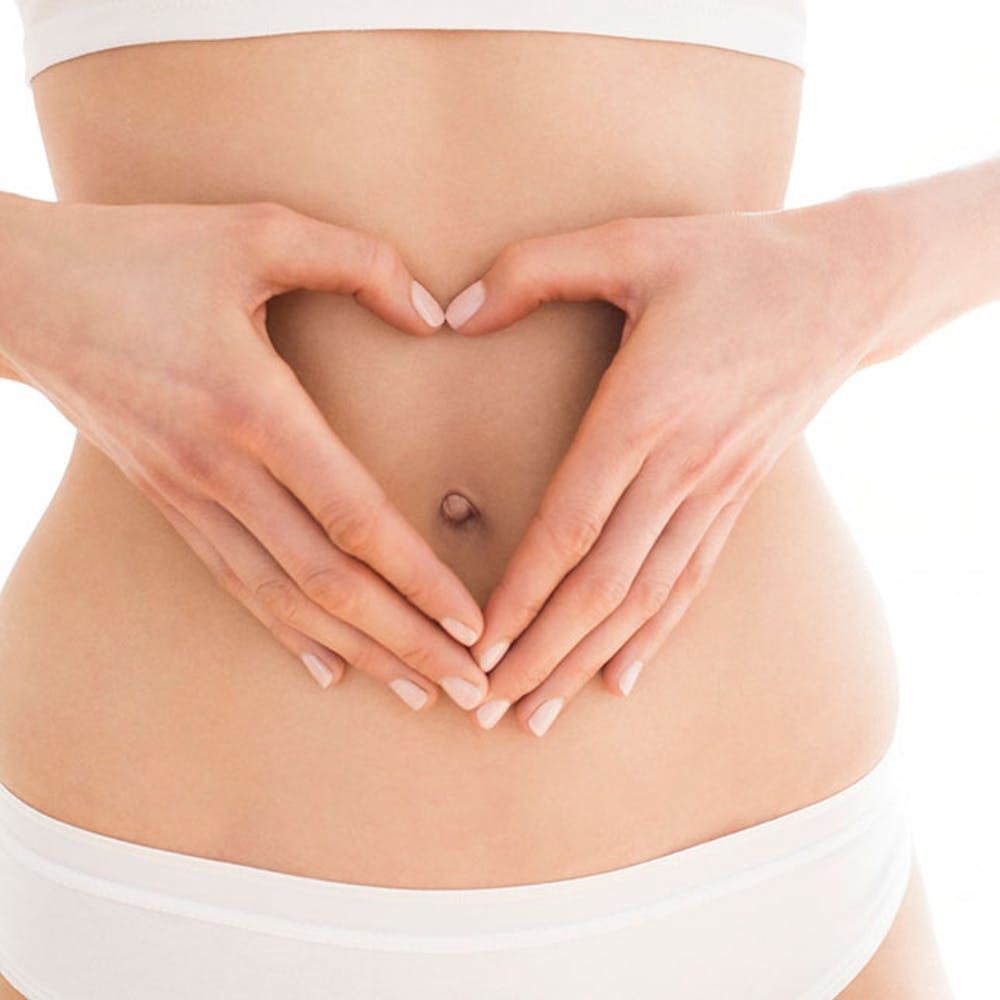You’re probably familiar with probiotics, the good bacteria in foods like yogurt, kombucha, and kimchi, and supplements that help keep your digestion regular, but what about prebiotics? They are probiotics’ partners in crime, giving them the fuel they need to keep the body’s systems balanced (gut health can affect anything from your immune system to your mental health). If your diet includes enough of them, prebiotics just may help you fight off a common cold or a massively annoying breakout before a big event. Here’s the rundown on where they might be hiding in your favorite foods and what else experts say they can do to give your body the boost it needs.
1. They’re essential to your gut function. It’s maybe not the cutest topic to talk about, but you can’t digest food without “good” bacteria (probiotics), according to dietitian Frida Harju-Westman, in-house nutritionist at the health app Lifesum, and prebiotics are a huge part of the process. “Prebiotics are typically non-digestible fiber that passes through the system, effectively feeding the good bacteria in the gut,” Harju-Westman says. So without them, things wouldn’t be able to move smoothly through your digestive system. Plus, she adds, they are probably already a major part of your diet and you don’t even know it. Find prebiotics in fiber-filled foods like bananas, apples, kiwi, chickpeas, lentils, artichokes, carrots, broccoli, quinoa, and chia seeds (and check out some more recipes for healthy digestion). If you want a boost of prebiotics, you may not even need to take a supplement, she explains: Just look to raw foods like sunchokes, onions, and asparagus to get the gut in gear.
2. Your immune health also depends on your gut. Both probiotics and prebiotics are important when it comes to immune health too. “Gut bacteria affect the immune system, around 70 percent of which resides in the gut: Here, improved immunity could impact our sense of overall well-being,” says dietitian Sonja Kukuljan, general nutrition manager of Freedom Foods. Having a diverse microbiome (the microorganisms present in a given environment) in the gut, made possible by energizing prebiotics, sends a signal to your immune system that certain bacteria are healthy and should exist in your body rather than being fought off.
3. Prebiotics could help you maintain a healthy weight. Eating foods rich in fiber (we’re talking whole grains like oatmeal, brown rice, and even popcorn if you want something fun to snack on) to begin with helps regulate your metabolism, research published in The American Journal of Clinical Nutrition shows, so it’s no surprise that prebiotics have something to do with it, since proper digestion is a huge factor in metabolizing food. Another recent study suggests that preventing obesity and staying at a generally healthy weight could have a lot to do with what’s going on in the gut, namely prebiotics. Gut bacteria might not be able to exist in a diet too high in fat, and this could lead to unhealthy weight gain over time (consider other pros and cons of a high-fat diet). But in general, the gut microflora thrive off plenty of fiber, AKA prebiotics, and that keeps the whole system going.
4. They could positively impact your mental health. You probably didn’t think that your gut could have anything to do with what’s going on in your brain, especially if you struggle with any form of anxiety or depression, but many hormones are more connected to your digestive system than it would seem. “Surprisingly, as much as 90 percent of serotonin in our bodies is produced in the gut, and the discovery that we have 100 million neurons in our digestive tract places further importance on the connection between what we eat and our mood,” says registered dietitian nutritionist Joyce Faraj of Mountainside Addiction Treatment Center in Canaan, CT. Loading up on sugary foods and anything else that’s highly processed can cause inflammation in your intestines that can throw off many systems in your body, according to Faraj.
“Furthermore, inflammation has been linked to depression in numerous studies. Good gut bacteria (fed by prebiotics) can help reduce our levels of systemic inflammation,” Faraj adds. “If we eat the right fiber-rich, nutrient dense foods and plenty of probiotics to maintain a healthy community of bacteria in our guts, we can potentially improve our mental health through our diet.”
5. Prebiotics can make a difference in your skin’s clearness.The microbiome of bacteria in your digestive tract is also related to the healthy balance of bacteria that lives on your skin (yes, it’s true — we actually want certain good bacteria to be on our skin because they play a role in purifying it, as strange as that sounds). “Prebiotics promote a more diverse array of bacteria, and diversity is key to healthy skin,” says New York City-based dermatologist Hadley King. “The good bacteria help defend the skin from bad bacteria and their inflammatory effects, and they also bolster the skin’s ability to deal with damaging environmental factors such as free radicals, sun, and pollution.” And when it comes to acne and redness especially, inflammation and bad bacteria are the main culprits.
“Products like masks, cleansers, and moisturizers containing prebiotics are great for the skin as they help maintain the Ph balance of the skin, which minimizes inflammation and also enhances the complexion. They also promote healthy skin bacteria which can control acne,” says dermatologist and RealSelf.com contributor Michele Green. The next time your skin is feeling a little iffy after some questionable late-night snacking, try to get it back on track with a couple of products like La Roche-Posay Toleriane Hydrating Gentle Facial Cleanser ($15), formulated with prebiotic thermal water, and Algenist ALIVE Prebiotic Balancing Mask ($38), and let the good bacteria do their thing.
Feeling healthy and creative? Tag us in your whole-food, prebiotic-rich meals on Instagram @BritandCo.
Brit + Co may at times use affiliate links to promote products sold by others, but always offers genuine editorial recommendations.
(Photo via Getty)
